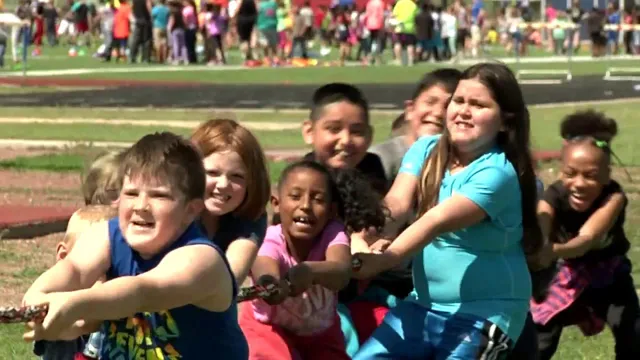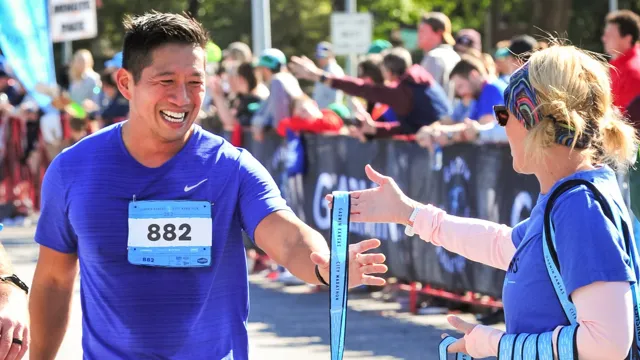As a parent, it’s natural to want to support your child in their passions, whether it’s sports, music, or academics. However, when it comes to youth sports, it’s important to be aware of the laws and regulations surrounding them – especially in states like Kansas. The state has various laws in place to ensure the wellbeing and safety of young athletes, and as a parent, it’s crucial to be informed about them.
In this blog post, we’ll take a closer look at Kansas kids sports law and what parents need to know to keep their children protected and thriving in their favorite sports. From concussion protocols to safety equipment, let’s dive into the details.
Overview of Children’s Protection Laws
Kansas has several laws in place to protect children participating in sports, including the Kansas Kids Sports Act. This law mandates background checks for coaches and volunteers, as well as concussion training for coaches and league officials. Additionally, the Safe Sport Act requires coaches to report suspected child abuse or neglect to law enforcement or child protective services.
These laws aim to create a safe and secure environment for children to participate in sports while also holding responsible parties accountable for any wrongdoing. It’s essential to always follow these laws and take extra precautions when it comes to protecting children. So, parents, coaches, and league officials must be aware of these laws and follow them to the letter to ensure our children’s safety.
Child Protection Act (CPA)
The Child Protection Act (CPA) is a law enacted to safeguard the welfare of children from abuse, neglect, and exploitation. It aims to protect the rights of children and ensure their safety from any form of harm. CPA includes provisions that mandate all states to report suspected child abuse or neglect cases to the relevant authorities for investigation.
The act also establishes guidelines for child abuse prevention and intervention programs. Additionally, the CPA provides training to individuals who work closely with children to identify signs of abuse and neglect and report them promptly. Overall, the CPA serves as a crucial tool in promoting the safety and well-being of children and preventing child abuse and neglect incidents.

Safe Sport Authorization Act
The Safe Sport Authorization Act is a law that focuses on protecting children while participating in various sporting activities. This act ensures that every organization involved in sports must implement strict measures that guarantee the safety of all children involved. Specifically, the law mandates that all national governing bodies of sports must create safe sports policies that protect young athletes from physical, sexual, and emotional abuse.
Additionally, youth sports organizations must adhere to mandatory reporting procedures, training, and background checks for all staff members. This law aims to ensure that every child who takes part in sporting activities is safe and secure from any harm. It is essential that every individual associated with children’s sporting activities take this law seriously and abide by its regulations to avoid any criminal charges and the safety of children.
Youth Sports Organizations’ Obligations
When it comes to youth sports organizations, there are certain obligations that they must adhere to in order to ensure the safety and wellbeing of young athletes. In Kansas, a law specifically addressing youth sports was enacted in 201 This law requires sports organizations to provide information about the risks of concussions and head injuries to athletes and their parents or guardians.
Coaches and officials are also required to complete concussion training and remove any athlete from play who exhibits signs or symptoms of a concussion. Additionally, youth sports organizations are required to have emergency plans in place for situations such as severe weather, injuries, and medical emergencies. These obligations may seem daunting, but they are essential for protecting the young athletes who participate in youth sports leagues.
By following these guidelines and taking proactive steps to ensure safety, sports organizations can provide a positive and healthy environment for young athletes to thrive in.
Background Checks & Training
When it comes to youth sports organizations, their obligations extend beyond just providing a fun and safe environment for young athletes. These organizations also have a responsibility to conduct thorough background checks on all coaches, volunteers, and other staff members who will be working closely with children. It’s important to ensure that these individuals have no history of criminal activity or other red flags that could potentially put children at risk.
Additionally, youth sports organizations should provide training for all staff members on appropriate conduct and interactions with minors. By taking these steps, these organizations can help to create a positive and safe environment for young athletes to thrive and develop their skills and passions. At the end of the day, the safety and well-being of children should always be the top priority for youth sports organizations.
Identification Verification Requirements
When it comes to youth sports organizations, there are a variety of identification verification requirements that must be met. These requirements are in place to ensure the safety and well-being of all participants. One of the primary obligations of youth sports organizations is to verify the ages of all participants.
This can be done through the collection of birth certificates or other official documentation. In addition, many organizations require background checks for any coaches or volunteers who will be working with young athletes. This helps to ensure that only qualified and trustworthy individuals are working with children.
Ensuring that these identification verification requirements are met is of the utmost importance for youth sports organizations, and failure to do so can result in serious consequences. By taking these measures, youth sports organizations can create a safe and secure environment for all participants.
Abuse Reporting Protocols
Youth sports organizations have a responsibility to their athletes to provide a safe and supportive environment, which includes reporting protocols for any instances of abuse. These protocols should be clearly communicated to everyone involved in the organization, including coaches, parents, and athletes. It’s important that everyone knows what to do if they suspect abuse, and that they feel comfortable reporting it.
The abuse reporting protocols should include steps for reporting, such as who to contact and what information to include, as well as steps for investigating the reported abuse. By having clear and effective abuse reporting protocols, youth sports organizations can help protect their athletes and create a culture of safety and respect.
Possible Legal Consequences for Noncompliance
Parents and coaches in Kansas should be aware of the potential legal consequences that may arise from noncompliance with state laws regarding youth sports. The Kansas Kids Sports Injury Prevention Act sets guidelines for the prevention and treatment of sports-related injuries among children and adolescents. Failure to comply with these guidelines, such as not having an available defibrillator or not following concussion protocols, can result in legal action, including fines and sanctions against the team or organization.
It is essential to prioritize the safety and well-being of young athletes and ensure that all necessary measures are taken to prevent potential injuries. By following the guidelines set forth by the state, parents and coaches can avoid legal troubles and create a safe environment for young athletes to participate in sports.
Fines & Penalties
If a business fails to comply with regulations, they run the risk of facing fines and penalties. Noncompliance can result in different legal consequences depending on the severity of the offense and the specific statute violated. In some cases, the fines imposed can be quite substantial, causing financial harm to the business.
Additionally, noncompliance can also result in the suspension or revocation of a business license. This can be devastating and potentially lead to a business shutting down. It’s essential for businesses to take regulations seriously and ensure they are compliant to avoid these consequences.
Remember, compliance is not just an ethical issue but also a legal one. Failure to comply can lead to devastating consequences that could impact a business’s reputation and its long-term viability.
Revocation of Registrations and Licenses
Revocation of Registrations and Licenses could have severe legal consequences for noncompliance. When a business or individual fails to comply with the regulations, an authorized body can revoke their registration or license. This may result in loss of income and reputation for the noncompliant entity.
For example, a company that does not adhere to proper safety guidelines may face the revocation of their business license. Similarly, medical professionals who fail to maintain their professional licenses may be prohibited from practicing, resulting in a loss of livelihood. Noncompliance could also result in hefty fines or even jail time, depending on the severity of the offense.
Therefore, it is essential to take regulations seriously and ensure compliance to avoid any legal consequences. As Benjamin Franklin once said, “An ounce of prevention is worth a pound of cure.”
Importance of Compliance for Children’s Safety
As parents, it’s our responsibility to ensure our children’s safety, especially during sports activities. This is where the Kansas Kids Sports law comes in, enforcing compliance from all relevant parties involved in youth sports. Compliance is not just a legal obligation, but a moral one too.
By complying with the rules and regulations set by the law, we can ensure that our children play in a safe and wholesome environment. It’s important to understand that these laws are not in place to hinder sports activities, but rather to promote safety and fair play. Compliance with the law is vital for building trust between parents, coaches, officials, and players, creating a positive and supportive community for our children to grow and thrive in.
So let’s prioritize compliance and keep our children’s safety at the forefront when it comes to youth sports.
Conclusion
In conclusion, the Kansas Kids Sports Law is a shining example of the state’s commitment to promoting the health and wellbeing of its young athletes. By setting standards for equipment, training, and coaching, the law ensures that kids can compete safely and with confidence. But let’s be real, even the best laws can’t protect against the occasional scraped knee or bruised ego – after all, sports are all about taking risks and learning from mistakes.
So let’s strap on our helmets, lace up our cleats, and get out there – because in Kansas, we know that winning isn’t everything, but having fun and staying safe sure is!”
FAQs
What is the Kansas Kids Sports Law?
The Kansas Kids Sports Law is a law that was enacted to establish minimum requirements for organizations that provide youth sports programs.
Who does the Kansas Kids Sports Law apply to?
The Kansas Kids Sports Law applies to all organizations that provide youth sports programs, including schools, leagues, clubs, and other organizations.
What are the minimum requirements under the Kansas Kids Sports Law?
The minimum requirements under the Kansas Kids Sports Law include background checks for coaches and volunteers, concussion training for coaches, and policies for addressing suspected child abuse.
Are there penalties for organizations that do not comply with the Kansas Kids Sports Law?
Yes, organizations that do not comply with the Kansas Kids Sports Law may face fines or other penalties, and their coaches and volunteers may be barred from working with youth sports programs in the future.
